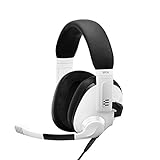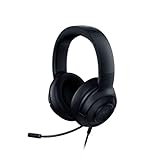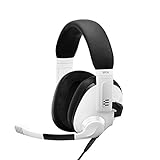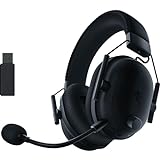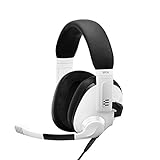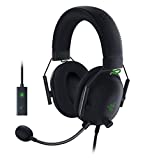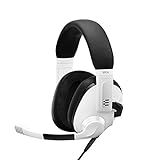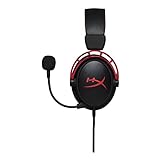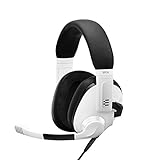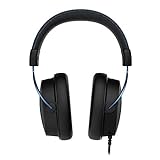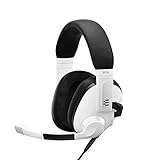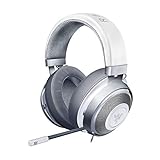EPOS H3 vs Razer Blackshark V2 X - Where are the differences?
Where are the differences?
Let's take a closer look at the differences between the H3* and Blackshark V2 X* gaming headsets.
What year are the headsets from?
The release year is of course important when comparing two headsets. After all, the release date has an influence on the state of the art and usually also affects the price. The EPOS H3 is from the year 2021 and thus newer than the Razer Blackshark V2 X. This one is from the year 2020. Which puts about a year between the two models.
Connection options
Let's start with the connectivity options from EPOS H3 and Razer Blackshark V2 X. Both give you the option to be wired. A wired connection reduces connection problems and interference, which is an advantage. In return, the cable can possibly interfere.
Radio offers the disadvantage that there can be interference in the verdinbung. In addition, with radio you are usually dependent on a battery, which can also go flat during use. Neither the EPOS H3 nor the Razer Blackshark V2 X can be connected wirelessly. So a wireless connection is not possible. However, often the wireless headsets also offer the additional option to connect the headset via cable.
Cable
The cable can only be removed on the EPOS H3. This is advantageous when a headset is used or transported wirelessly. With a length of 2,0 m the EPOS H3* has a longer cable. The cable length of the Razer Blackshark V2 X is 1,3 m. With a USB sound card additional cable can be added.
Audio
The driver size is larger for the Razer Blackshark V2 X with 50 mm. With a larger driver, especially low frequencies can be reproduced more easily and louder. However, other factors play a role here, of course.
For the EPOS H3 the frequency range starts at 10 Hz. For the Razer Blackshark V2 X the value is at 12 Hz. The end is at EPOS H3 for the 30000 Hz and at Razer Blackshark V2 X for the 28000 Hz. What is really important here is the range between 50 Hz and 10,000 Hz, which is covered by just about every headset nowadays.
The higher the impedance, the more power a speaker can produce. Also the sound becomes clearer. The Razer Blackshark V2 X* is in front with a value of 32 Ω. For the EPOS H3, the impedance is 20 Ω.
7.1 surround sound is offered by the two gaming headsets from the comparison.
The EPOS H3* supports Dolby Atoms, which is not to be confused with 7.1 surround sound. It is the next generation. Doly Atoms additionally includes sound effects from above. As a rule, a driver or adapter is necessary for this.
Microphone
Only with the Razer Blackshark V2 X you have the possibility to take off the microphone. This can be advantageous if you don't need it or want to transport your headset.
In contrast to the Razer Blackshark V2 X, the EPOS H3 has a noise suppression. Especially clicks and keyboard strokes are supposed to be suppressed.
The microphone frequency range of the EPOS H3 starts at 10 Hz. The microphone of the Razer Blackshark V2 X starts at 12 Hz. The microphone of the EPOS H3 ends at a frequency range of 30000 Hz. The frequency range from the microphone of the Razer Blackshark V2 X ends at 28000 Hz.
Volume control and mute
Almost every gaming headset offers the possibility of volume control and mute. So it is also in this case.
Both models offer the option of muting. The operation is done for the EPOS H3 and Razer Blackshark V2 X by Auricle.
Which headset has more features?
Finally, let's take a look at the equipment. Here, some models have lighting. These two headsets don't have that, but it doesn't affect the performance negatively. After all, the illumination is just a matter of taste.
Furthermore, some headsets have freely programmable buttons, as is also known from gaming mice or keyboards. But you have to do without this for the EPOS H3 and Razer Blackshark V2 X.
